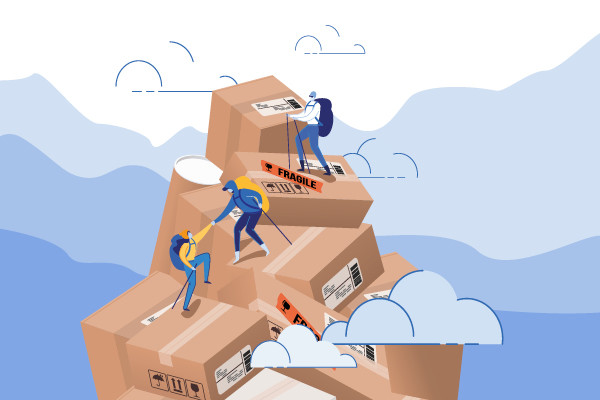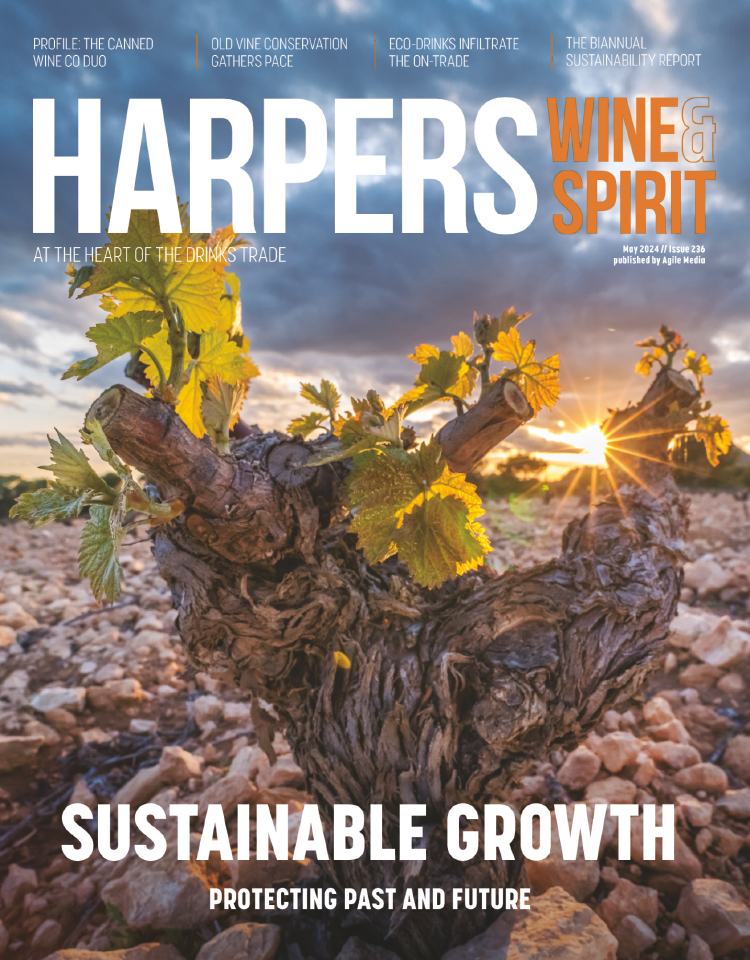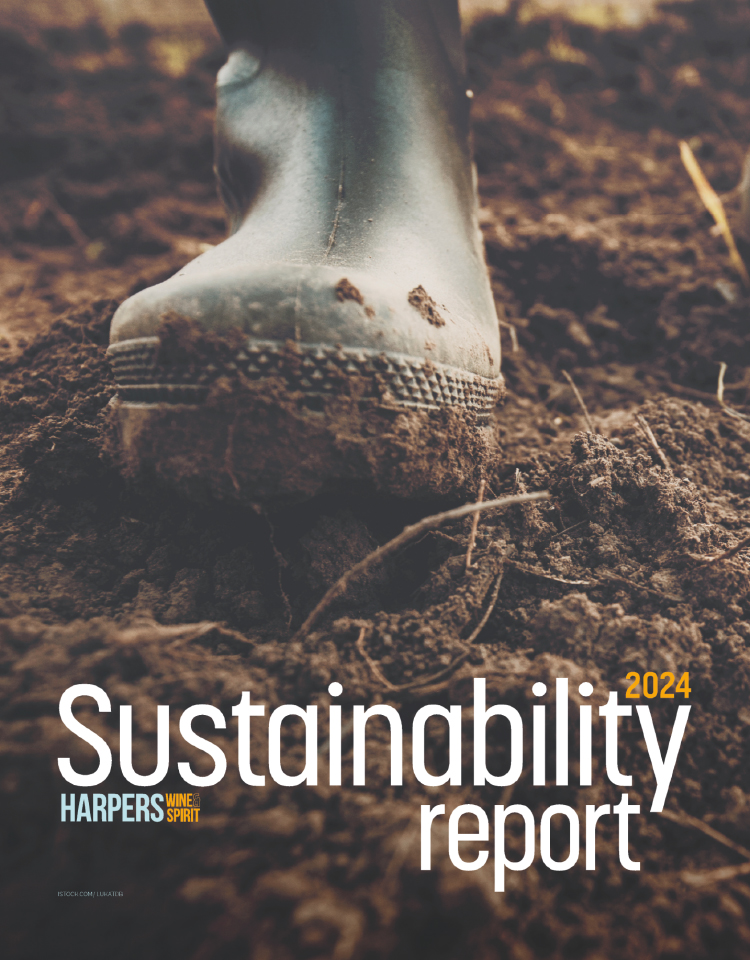
Online uplands: scaling the new heights
Moving to online sales has saved more than one drinks retailer in recent weeks and all the signs point to the model continuing, finds Andrew Catchpole.
What a difference a week can make, especially when there’s a pandemic lapping against your business’s door. Anyone would have had to be living on a blissfully unaffected off-grid Pacific atoll to have missed the explosion in online ordering that has engulfed the drinks world since the Covid-19 lockdown began in earnest on 24 March.
During the first week alone, with supermarkets and online specialists struggling to keep up with orders – Ocado and Naked Wines were among those that temporarily suspended their ordering platforms to try to keep abreast of demand fulfilment – beer, wine and spirits sales in the UK grew by 50%, according to IWSR snapshot research.
And that initial surge continued, with alcohol sales in UK retailers up 31.4% in volume and 32.6% in value across March, well ahead of overall supermarket sales, up 10.3% during the month, according to Office of National Statistics (ONS) data. Further figures from Nielsen, covering the four weeks to 18 April (year on year), showed an ongoing online uplift of 78% for BWS, again outstripping the rises for all other groceries.
Meanwhile smaller independent merchants, along with medium-sized concerns such as The Wine Society, were also reporting demand “outstripping the lead into Christmas”, with a bulk of these sales shifted to online. Oxford Wine Company’s online sales have risen five-fold; the hybrid Vinoteca group by a factor of four, and growing. The list could run and run…
Crunching the numbers serves as a dizzying reminder of just how extraordinary the online uplift has been. And, with suppliers also moving into the direct-to-consumer (DTC) market in various ways, this shift to virtual BWS shopping shows no sign of abating soon.
The big question, though, after the initial scramble to keep up, is how much businesses now plan to invest in this side of things going forward. There’s also the issue of whether consumers will revert in full to old buying habits down the line, including that (until recently) pleasurable visit to the local wine store to mull over a bottle or two.
What can be said is that consumers are, in effect, being ‘trained’ to browse, shop and interact online like never before, with even tech-phobic and older generations embracing the likes of Zoom, click and collect, online checkouts and more. And, once these skills become the ‘new norm’ – and with possibly months to go under some degree of social isolation – a host of factors and concerns will hasten the move online.
↓
Setting a precedent
Despite the enormity of the current pandemic, a precedent has been set. A recent report in The Economist charted how the SARS epidemic of 2002-2003 in Asia rapidly accelerated an ongoing trend for consumers to switch from bricks-and-mortar shopping to online, with “devastating consequences” for many traditional retailers.
On the back of the current pandemic, Mintel predicts that, in the UK, “online grocery shopping will grow by around 33% in 2020”.
Fortunately, beers, wines and spirits (at least at the quality end) are emotive and pleasurable purchases, benefitting from the chatty interaction and knowledge of experts in-store. This should help keep bricks-and-mortar drinks retailers afloat when the pandemic subsides and shops reopen, even as consumer spending is decimated by recession.
But nonetheless, as per the growth in hybrid business models, it isn’t much of a leap in logic to suggest that online sales will remain as a much more significant part of the sales channels mix for many merchants.
“It’s definitely too early to tell whether the boom is temporary or permanent. But, for example, Nielsen revealed the US online wine market grew 20% in 21 days in March. UK online grocery took 20 years to grow by that amount,” says Eamon Fitzgerald, global wine director at Naked Wines, the online wine specialist with a business straddling The Pond.
“I believe a variety of retail industries – from wine to coffee to organic vegetables – will see significant consumer shift to online, and the players offering the highest quality product and level of service are well placed to keep these customers who are trying online for the first time.”
At the moment, with the UK’s lockdown six weeks in (at the time of writing), Harpers has been receiving differing feedback from those we’ve spoken to as to their possible future emphasis on online sales.
On-trade supplier Jascots, which has switched to a DTC model in the absence of its on-trade customer base, has, with a swift website redesign and limited marketing, won 975 new private sales customers during lockdown, while experiencing a 625% increase in online interactions via its website through April. However, says managing partner Miles McInnes, “this is a temporary move during the current situation to help cover some of the lost business [to on-trade] and, while we will continue to sell to private clients, our focus will switch back as the on-trade picks up”.
At hybrid wine bar-into-off-sales group Vinoteca, however, co-owner Charlie Young says his eyes have been opened to the underutilised potential of the online channel.
With a skeleton crew, Young has been servicing online orders out of Vinoteca’s City of London site, with the 400% uplift coming from a very small base (Vinoteca’s off-sales are typically a mix of wine bar customers also taking bottles to go and local workers and neighbours popping in to buy), but continuing to grow.
“We have seen the interest and we are now really trying to push that and engage people with that, because if there’s anything we’ve been guilty of in the past, it’s that most of our time and resources have been spent on running our restaurants and wine bars,” he says.
“In terms of communication and marketing we haven’t really had the opportunity to concentrate on online sales, but now we can really see that it’s worth pursuing and we can grow it further,” he says, perhaps to “rival the income from a smaller site”.
And, while currently such online sales are only covering “less than 5%” of typical turnover for Vinoteca’s combined five sites, with Young modelling on a near-term future (whenever the on-trade shutdown eases) of revenues at between 30-40% of normal trade, the attractions of any increasing revenue streams are obvious.
As for the many more traditionally rooted independent merchants, focused on shop retail sales, degrees of local wholesale and a very rough collective average of around 10% of sales online, the opportunity to keep up the current momentum via that latter channel is clear.
As Harpers has reported in the past, operators as diverse as Ted Sandbach at Oxford Wine Company and Ruth Yates, ex-Corks Out, have said that the resources needed to run a quality online operation are “equal to opening another shop” and thus difficult for smaller operators to achieve. Now, though, may well be a wise time to take that leap of faith and make that investment.
Keywords:
- wine
- UK
- Independent Merchants
- Naked Wines
- Online
- sales
- trade
- BWS
- Online sales
- vinoteca
- customer base
- website
- Oxford Wine
- Covid-19
- pandemic
- web sales





